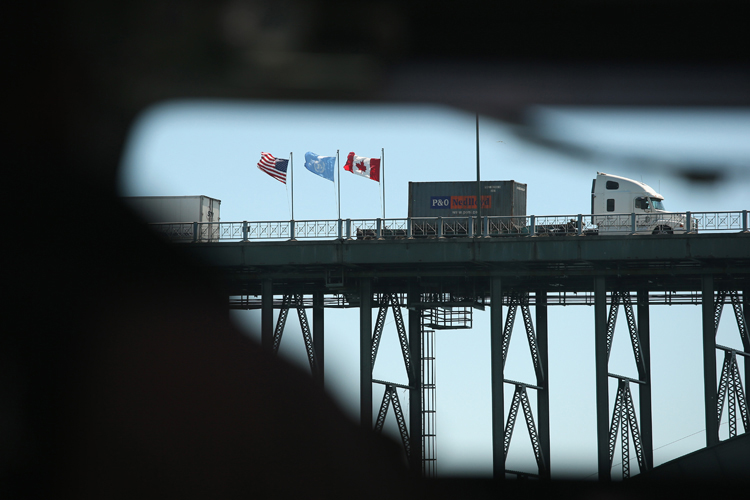Eleven U.S. states have a land or bridge border with Canada.

Alaska and Washington State have legalized recreational marijuana, and Maine voted last week to follow them.
READ MORE: Four more states vote to legalize recreational marijuana
That leaves nine border states, from Idaho to New Hampshire, where recreational marijuana is going to be illegal for the foreseeable future, though some have more or less active debates. They are next door to a vast country where, at some point in the next few years, any adult with a debit card will be able to buy any amount of pot.
Prime Minister Justin Trudeau’s Liberal government was elected on a platform of fully legalizing recreational marijuana. The government has promised legislation in early 2017.
Inevitably, many Americans are going to buy Canadian marijuana and want to bring some home, creating headaches for U.S. border officials (and life-changing consequences for some individuals.)
READ MORE: How will legal pot be sold? Three things that might happen, and one that won’t

Get daily National news
Just as inevitably, more southbound travellers are going to be singled out for further scrutiny when they cross the border, if a dog sniffs at their bags or a U.S. border officer catches a whiff of marijuana smoke in a car. That means border crossings work more sluggishly.
“That’s the area that’s most likely to have a physical effect, slowing down the border, if it were to occur in any kind of large volume,” explains Jim Phillips of the Canadian/American Border Trade Alliance.
U.S. border officials would have a new challenge, and not necessarily be given more people to deal with it, Phillips says.
READ MORE: Pot use after it’s legalized in Canada could still get you barred from U.S., lawyer warns
“If you have the primary lanes open, let’s say you go to a crossing and it has six lanes coming into the United States and they’re all open, it’s those six officers who would be required to detect (marijuana). There wouldn’t be any additional lanes open – there would simply be the fact that more and more people are going to secondary, and if there was enough volume, that’s where you could clog up.”
Stuck in the slowed-down border will be both travellers and cross-border trade – truckloads of auto parts, for example.
(There is a precedent, though not a very comforting one. Prohibition of alcohol in the 1920s took a somewhat less strict form in Canada than in the United States, which led to a flourishing, and at times violent, illegal export trade of Canadian liquor to the U.S.)
U.S. border guards have been barring Canadians from entering the States for answering “yes” to having used marijuana. Immigration lawyer Len Saunders spoke with Geoff Hastings on BC1 about what you should do if you are asked about your pot use.



Comments